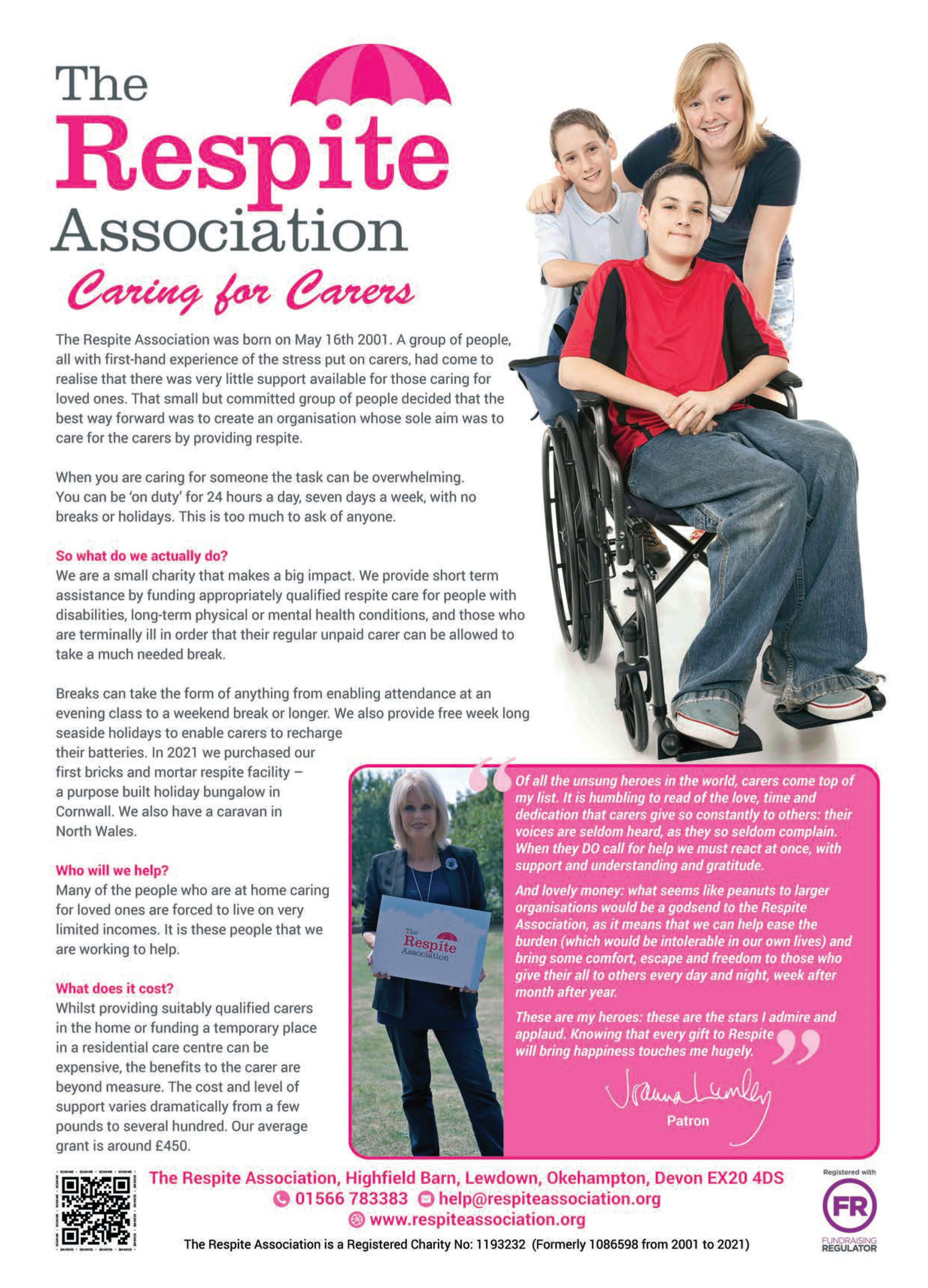











Read the report on pages 18-19

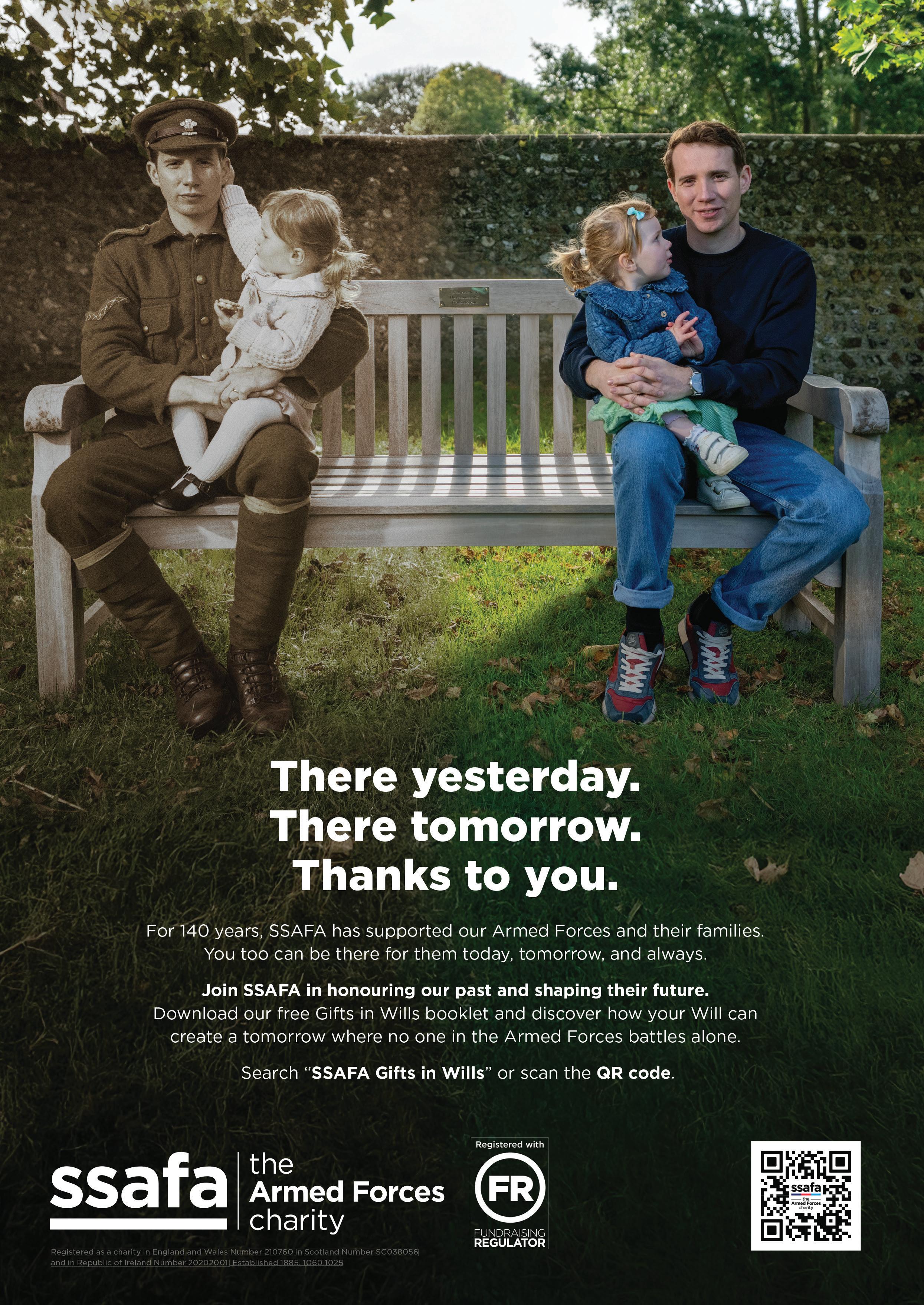







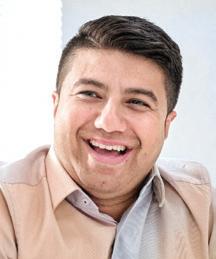



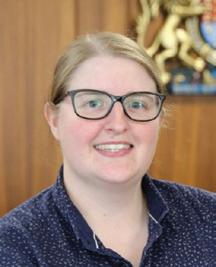
Elizabeth
Greens Solicitors elizabeth.miles@greenssolicitors. org
Laura Osborne Administrator Headturner Search laura@headturnersearch.co.uk


Nick Hughes Committee Member HB 121 Solicitors nah@hb121solicitors.co.uk

Vishal Mahay Committee
Waldrons Solicitors Vishal.Mahay@waldrons.co.uk
James Osborne
Harrison Clark Rickerbys josborne@hcrlaw.com
Amy McGowan-Docherty Editor of The Pears magazine Harrison Clark Rickerbys amdocherty@hcrlaw.com


Georgina Groves Committee Member Harrison Clark Rickerbys ghunt@hcrlaw.com
Jenny Watkins Committee Member University of Worcester jenny.watkins@worc.ac.uk






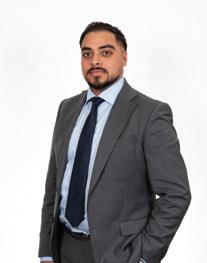


Welcome to the final Pears Edition for 2025.
This is always a wonderful introduction to write as we have just had our uplifting Awards Ceremony which was yet another
success. I would like to thank all our sponsors once again and very much hope to welcome them back again next year. To our nominees, finalists and very worthy winners, congratulations once again. You made your firms, colleagues and our Profession incredibly proud. Now we are moving into the colder, miserable months of winter, I hope we can take some of the sparkle of that evening to carry us through to Spring… I’m ever the optimist.
Talking of optimism, I think most of you will have now seen or heard the case of Mazur, whatever rank you are within the legal profession, it is causing waves and for the next few months there will continue to be uncertainty. The Law Society will be publishing guidance shortly and the SRA COLP conference is 21 October so
‘something’ should come out of that (told you I was an optimist).
If any firm, or individual has any suggestions or requirements for training that they would like the WLS to look to put on in 2026, please do contact either myself or any committee member. We are looking to build this side of the Society, but unless we know what is of interest or need, we won’t know where to start!
I will sign off by simply wishing everyone peace and happiness in our uncertain times.
Liz Miles, President, Worcestershire Law Society, 2024-2025


Becky Parker:
Becky Parker has celebrated a major career milestone, officially qualifying as a solicitor in Bradley Haynes Law’s Corporate and Commercial team. After stepping away from law to raise her family and gain valuable property experience, Becky’s determination and perseverance have propelled her back into the profession, proving that dedication and passion make success possible at any stage.

Leigh Wills:
Leigh Wills has turned passion into achievement, rising from office junior to Licensed Conveyancer at Bradley Haynes Law. Joining the firm in 2019, she helped transform the residential conveyancing department while completing her CLC qualification - overcoming challenges from Covid to personal setbacks along the way. Now a board director and Licensed Conveyancer, Leigh’s journey is a testament to dedication, resilience, and a love for conveyancing.

HCR Law ranked top UK legal adviser for M&A deals
HCR Law retains its position as the UK’s top legal adviser for mergers and acquisitions (M&A) in Experian’s MarketIQ H1 2025 report.
While the report notes a slowdown in overall M&A activity in the first half of the year compared to 2024, HCR’s Corporate team remains the go-to legal adviser for businesses across the UK for M&A. Against a challenging market backdrop, HCR’s reputation for specialist expertise and a client-centred approach has led to the Corporate team delivering a significant volume of high value deals.
Holding first position by a significant 43 deal margin, the results underscore HCR’s national presence and further establish its reputation as the trusted adviser in corporate law.
Regional results are equally strong. Following the success of the Q1 2025 report, the firm continues to be ranked first for M&A deals in London, the South East, South West and East of England.
HCR also maintains its first place position for the Midlands, shortly after receiving a double nomination for its M&A expertise ( https://www.hcrlaw. com/news-and-insights/doublenomination-for-hcr-law-at-insidermidlands-dealmakers-awards-2025/ ) in the region at this year’s Insider Midlands Dealmakers Awards.
Wales keeps its third place ranking while the North East region is listed in the top 10 for M&A deals in the region.
Richard Wilkey, Head of Corporate at HCR Law, said: “HCR Law consistently ranks highly for M&A activity in the country and we’re thrilled to be recognised as the top legal adviser for M&A deals once more.
“While the UK M&A market has faced its challenges, these latest rankings demonstrate our commitment to delivering trusted advice to clients at this key stage in their business journey. We approach every transaction with the highest level of commitment, whether supporting a multi-acquisition strategy of an international organisation or advising a family-owned business. These moments are often defining for our clients, and we’re deeply grateful for their continued trust in allowing us to act as an extension of their team.
“Our Corporate team continues to grow across England and Wales, with significant senior appointments this year, further demonstrating the strength of the department as we move into the second half of the year.”
Event marks milestones at law firm
Worcestershire law firm mfg Solicitors held its latest ‘Law and Order’ networking event for professionals across the region.
The event, held at Worcester’s Piston

Distillery, celebrated partner and chairman
Iain Morrison who has marked 30 years at the firm, whilst also introducing new partners, corporate expert Sophie Thornton, and commercial property specialist, Ruth Bourton
The law firm welcomed over 60 guests to the riverside venue who were treated to a drinks and canape reception.
Andrew Davies, partner and managing director at mfg Solicitors said: “It was great to see so many professionals from across the region joining us for our latest networking event. It gave us the chance to celebrate Iain’s rare milestone, but also introduce Sophie and Ruth to more clients and partners.
“Not only is Iain one of the country’s most respected and successful agricultural solicitors, but he has also played a central role in the growth and development of mfg. It was great to mark his 30 years and give an insight into his superb career.”
NBB Law and Waldrons Solicitors
Create a New Market Leader
Waldrons Solicitors is excited to announce its acquisition by NBB Law, a Birmingham and London-based legal practice known for its client-focused service and specialist expertise.
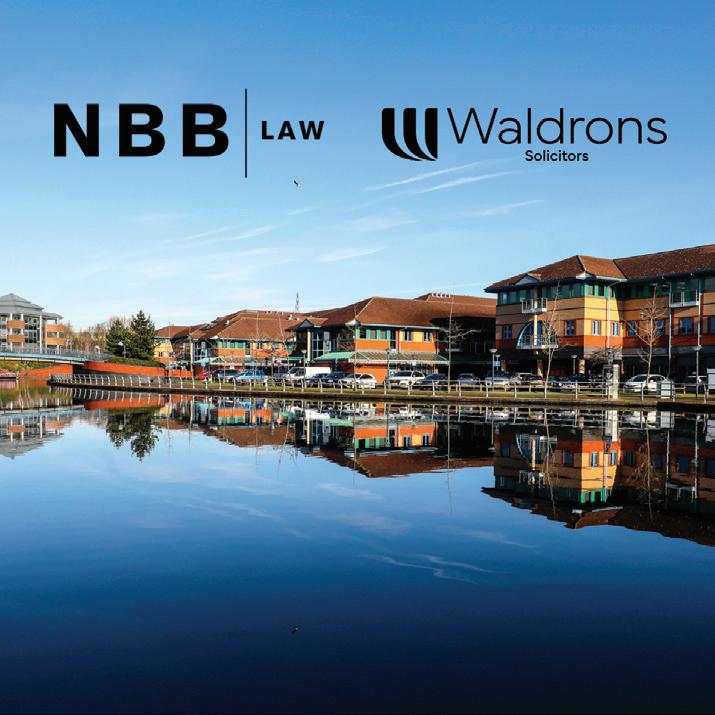
With a history dating back 65 years, NBB Law has built a strong reputation for delivering high-quality legal services. The firm is known for its pragmatic approach, deep sector knowledge, and enduring client relationships. Trusted and highly regarded legal advisers in their field, championed and recommended by their clients.
This acquisition marks a continuation of our legacy. We remain committed to the values and standards that have defined Waldrons for generations, while also bringing new resources, expertise, and innovation to ensure its future success. Clients can expect continuity in the relationships and services they rely upon, now enhanced by the broader opportunities this new chapter will bring.
Our combined firm now has over 130 staff, including 70 solicitors, across eight office locations in England. This growth offers clients unrivalled access to talent, cross-sector insights, and innovative legal solutions.
Joseph Norton, Managing Director at Waldrons Solicitors, said:
“The team here at Waldrons are proud of what we’ve built over many decades. Joining forces with NBB Law opens new horizons for our clients and our people.
“This new chapter honours the legacy of our late Managing Director, John Roberts, whose visionary leadership for over 30 years shaped the foundation of the firm.
“The transition will bring both stability and opportunity for our people and will also reassure our clients that the people they know, and trust will remain in place. As our brand and business continues to evolve, the heritage and values of both firms will remain.”
Rob Bhol, Managing Director, and Paul Nicholls, Senior Partner at NBB Law said:
“This is a defining moment in our firm’s history, the acquisition of Waldrons Solicitors not only brings together two firms with highly complementary strengths, but it also marks our commitment to bringing legal services of the highest standards to local communities with a focus on agility, collaboration, and excellence.
“Taking on the custodianship of a firm established in 1867 is both a privilege and a responsibility. We deeply respect the generations of professionals whose hard work and integrity built this legacy. Our commitment is to preserve what makes the firm distinctive, to honour the trust of its clients, and to ensure that its reputation for excellence continues to grow long into the future.”
Clients of both firms will benefit from a seamless transition, maintaining access
to the solicitors and teams they know and trust. Integration ensures continuity while also providing enhanced capabilities, broader sector expertise, and innovative legal solutions.
If you have any questions about the acquisition or how it may affect you, please get in touch with our team, who will be happy to provide guidance and support.
Bradley Haynes Law Appoints Veronica Beard as Mental Health First Aider

At Bradley Haynes Law, we are committed to the wellbeing of our team, recognising that mental health is just as important as physical health. We are delighted to announce that Veronica Beard has been appointed as a Mental Health First Aider (MHFAider) in the workplace.
As an MHFAider, Veronica is an integral part of our health and wellbeing strategy. Supported by clear policies, referral pathways, and our organisation-wide approach, she provides confidential guidance and can signpost colleagues to the right support, both internally and externally.
Her appointment reflects our ongoing commitment to creating a workplace where wellbeing is prioritised and colleagues feel fully supported. We are proud to have Veronica in this role and look forward to the positive impact she will have on our team’s wellbeing.
To find out more about the work that Mental First Aid England completes please visit: https://mhfaengland.org/
Worcestershire law firm mfg Solicitors has strengthened its Corporate and Commercial Property offerings through two new partner appointments.
Widely respected corporate law specialist Sophie Thornton has joined the firm from international law firm, Pinsent Masons, and will be based at mfg’s Worcester office. With a strong track record in mergers and acquisitions, corporate reorganisations, joint ventures and shareholder agreements, Sophie’s arrival marks a significant addition to mfg’s corporate capabilities. She will work alongside partner and divisional head, Clare Lang
The firm has also strengthened its Commercial Property division with the appointment of Ruth Bourton . She joins mfg from LCP UK where she served as in-house Legal Counsel providing both strategic and day-to-day advice on its extensive property portfolio. Ruth also joins the Worcester office and will work closely with divisional head Ben Rothery Ruth advises on a range of commercial
property matters, including landlord and tenant transactional work, acquisitions and disposals of commercial units, refinancing transactions, and corporate support.
Both Ruth and Sophie return to mfg Solicitors after originally completing their training with the firm in 2007 and 2012 respectively, and are now working together to offer clients a streamlined service.
Andrew Davies , partner and managing director at mfg Solicitors said: “We are experiencing sustained growth across all areas of the firm and this has meant further investment into our specialist teams.
“Sophie and Ruth both have exceptional credentials in their respective areas having completed their training with us some years ago. They will bolster our team in Worcester and are already making an impact with our clients and within the city’s close-knit business community.
“They will undoubtably make a big impact for us in the coming months and years and will help to drive and inspire the next generation of solicitors we also have coming through within our Corporate and Commercial Property teams.”

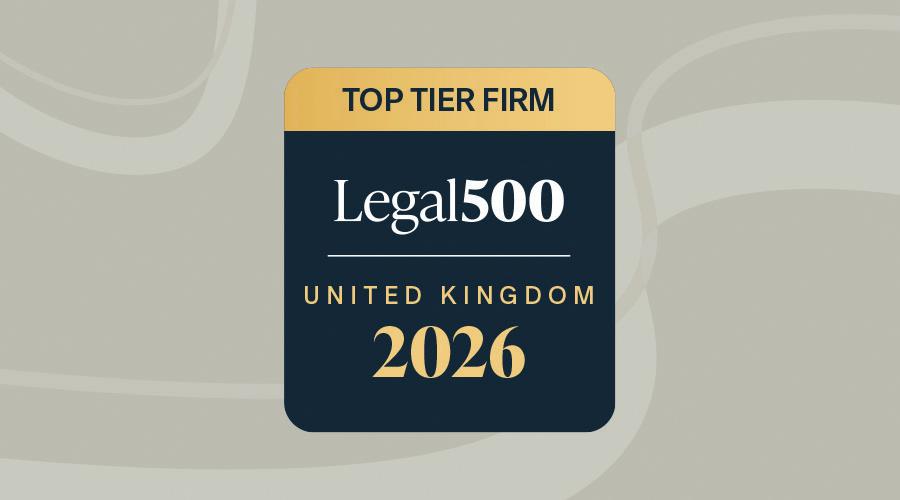
Sustained growth and specialist sector practices recognised by Legal 500 2026 rankings
HCR Law’s sustained period of growth, driven by increasing client demand, has been recognised in the 2026 Legal 500 rankings, with leading results across multiple practice areas throughout England and Wales.
The Legal 500 is a globally respected directory for legal services, based on research conducted among clients and peers.
In this year’s rankings, HCR Law has achieved a combined record of 70 firmwide rankings and 65 individual lawyer recognitions. Notably, the firm secured 10 first-time rankings across a diverse range of specialist practice areas and geographic locations. In addition, eight practice areas improved their tier positions compared to the 2025 results.
Our Welsh office in Cardiff, which is celebrating its five-year milestone in 2025, saw five teams improve their rankings. Notably, Agriculture and Estates progressed to Tier 1, while Sports moved up to Tier 2. Two practice areas also received first-time recognition. Private Client: Contentious Trusts and Probate, recently strengthened by the arrival of Richard Adams – who has been recognised as a Next Generation Partner – was awarded a Tier 3 ranking; while in Crime, Fraud and Licensing, the team also achieved a new Tier 2 ranking for 2026, with Aled Owen highlighted as the practice head.
The firm’s growth across East Anglia has also been recognised, with 15 practice areas ranked as part of our full-service legal offering. In terms of individual recognition, Natalie Minott, Head of
Office for Cambridge, was named a Leading Partner in Real Estate and Property Litigation. Meanwhile, Frank Brumby was awarded a prestigious Hall of Fame ranking, in the same 12-month period in which he became Head of Office for our newly launched Norwich office. This expansion marks a significant step in strengthening HCR Law’s presence across East Anglia, enabling us to better serve clients throughout the region.
The London office, which recently moved into its new address at WTW in the City of London, maintained its rankings across strategic and specialist practice areas. The Insurance and Risk team, led by Jonathan Edwards , was ranked in the Insurance category, after receiving recognition as a finalist in the Best Newcomer category at the British Insurance Awards earlier this year. Additionally, the specialist Partnership division within the Corporate and Commercial practice, led by Robert Capper and Rachel Khiara , was once again ranked in the Legal 500.
In the West Midlands and Birmingham areas, we have four new practice areas ranked for the first time: Employment (across two categories), Banking and Finance and Commercial Property.
Our Corporate and Commercial practice was ranked across all strategic regions where HCR Law has an office presence, maintaining a Tier 1 ranking in the West Midlands and Birmingham. This recognition follows a recent accolade for the Corporate team, which was once again named the leading legal adviser for M&A activity across the UK, as reported by Experian.
Similarly to Corporate and Commercial, the Family practice achieved recognition across England and Wales. In both the South West and Wales the team was awarded a Tier 2 ranking, building upon the Tier 3 ranking in 2025. Additionally, in the South East, the team received a first-time Tier 3 ranking.
Of the 70 firmwide rankings and 65 individual rankings, the 10 first-time rankings span the following practice areas:
• Banking and Finance
• Crime, Fraud and Licensing
• Employment: Health and Safety
• Employment: Immigration (both in the West Midlands and South East)
• Private Client: Contentious Trusts and Probate
• Private Client: Family
• Real Estate: Commercial Property
• TMT: Intellectual Property
• TMT: IT and Telecoms
Alongside the team rankings, HCR received 197 individual lawyer mentions, including 36 Leading Partners. The directory also recognised 10 Leading Associates, 14 Next Generation Partners and five colleagues listed in the Hall of Fame.
HCR Law shortlisted for Employment Law Firm of the Year award

HCR Law’s Employment and Immigration team has been shortlisted as a finalist in the Employment Law Firm of the Year category at the Personnel Today Awards 2025.
Judged by a distinguished panel of HR experts, the Personnel Today Awards celebrates excellence in HR and Learning and Development in the UK, recognising stand-out achievements in the profession.
The Employment Law Firm category acknowledges the work that specialist employment law teams do for their HR clients, taking into account examples of exceptional client service, performance and innovative thinking.
HCR Law’s Employment and Immigration team delivers strategic, client-centred advice to HR professionals, supporting them with everything from workforce
management and compliance to complex immigration problems.
Michael Stokes, Head of HCR’s Employment and Immigration Team, said: “We’re thrilled to be shortlisted in this year’s Personnel Today Awards. Hard work pays off and it’s fantastic to see our team recognised for our expertise in employment law and the important work we do to advise employers and employees facing HR challenges.
“We’re looking forward to celebrating our successes and the wider achievements of the UK’s HR industry at the awards.”
This year’s winners will be announced at the Personnel Today Awards evening, which takes place on 18 November 2025 at Grosvenor House Hotel on Park Lane in London.
New trainees join law firm as it invests in next generation
A group of nine new trainees have been taken on by leading Worcestershire law firm mfg Solicitors as it invests in the next generation.
The new trainees beginning their twoyear training contracts are Oliver Leigh, Bethany Steel , Alena Dudrah , Jack Cook and Tayler Bannister. The new cohort began their contracts on 1 September, and each will gain experience across different departments within the firm as part of their training.
Alena, Jack and Taylor were already paralegals at the firm but will now move into full-time training contracts, all of which are managed and overseen by partners Tom Esler and Sam Pedley
They are joined by Qualifying Work Experience (QWE) trainees Emily Thompson , Asifur Rahman , Joanne Pickett and Victoria Cairns-Terry
Tom Esler , partner and training principle at mfg Solicitors said: “Every year we take on an exceptional group of trainee solicitors and this year is no different.
“All nine trainees have showcased their passion to carve out successful careers in the legal sector and we believe they are amongst the region’s best and strongest young talent.
“We look forward to supporting them over the coming years during their training contracts and watching them thrive across our specialist teams and departments.”



From speaking with many neurodivergent colleagues, one thing is clear: there is a deep desire to be heard when it comes to creating inclusive physical environments.
External stimuli can affect neurodivergent individuals in ways that go far beyond discomfort. It can cause genuine physical pain, overwhelm, and exhaustion. Overstimulation may make it difficult to concentrate, focus, communicate reliably, or relax - often leading individuals to feel they must overperform to compensate. Many work longer hours, waiting until the office quiets down simply to reclaim a little mental bandwidth.
Imagine the classic interrogation scene often seen in older films: a suspect sits beneath a harsh, flickering light, sharp shadows cutting across the walls. The silence is broken only by the relentless tick… tick… tick of a large wall clock. Each second reverberates unnaturally, echoing off the bare walls, magnifying tension and discomfort. The flickering light pierces the eyes; the ticking clock seems to vibrate through the body. For some, the everyday sensory landscape of a workplace can feel exactly like this - bright lights, overlapping conversations, the hum of equipment, unpredictable bursts of sound or scent that others barely notice. What feels like background noise to some can feel like standing in a storm with no shelter for others where every sound lands and lingers; the brightness of monitors feels sharper, the air feels thinner, and bodies tighten, bracing for the next unpredictable burst of stimulus.
Now layer the festive season over that: flashing fairy lights, music from multiple
corners of the office or outside on the street, the smell of spiced candles, pine, and leftover mince pies mingling in the air. More chatter, more movement, more texture, more light. What for some feels joyful and energising can, for others, tip the balance from just manageable to utterly draining - sapping energy simply to make it through the day.
As we approach the festive season, I ask you to pause and consider how this discomfort might be amplified: the hustle and bustle outside the office, bright decorations, background music, increased social events, and the many additional pulls on attention and time. Each person experiences sensory stimuli differently, so please make space for your colleagues to be listened to, heard, and believed.
It’s also worth noting that these adjustments don’t just help neurodivergent colleagues. Thoughtful consideration benefits a wide range of people: introverts who may need quieter spaces, colleagues with dietary restrictions navigating rich holiday foods, parents balancing end-ofyear school plays and carol concerts, and anyone who finds the festive season more draining than energising.
In a profession where many people with disabilities are less likely to disclose for fear of discrimination, it is even more important to hold space for safe and open conversations, and to make considerate adjustments during this busy time of year.
Below is a collected list of suggestions from colleagues. This is not prescriptive or exhaustive but is intended as a guide to open up conversations to consider colleagues and clients alike. Thoughtful adjustments can make all the difference:
Sensory Considerations
• Keep music, lighting, and decorations at moderate levels.
• Choose steady, warm lighting over harsh or flickering sources.
• Allow employees to adjust their workspace where possible - dimming screens, moving seats, or using natural light.
• Offer noise-cancelling headphones or access to quiet zones where staff can step away to reset.
Flexible Social Participation
Make attendance at social or festive events optional, with quieter alternatives or virtual options.
Provide Quiet Spaces
Designate calm areas where employees can decompress from sensory input.
Communicate Plans Clearly
Share schedules and event details in advance to help people prepare and manage potential triggers.
Inclusive Gift-Giving
Avoid stressful “Secret Santa” arrangements; provide choice or opt-out options.
Flexible Working Arrangements
Allow early finishes, remote work, or adjusted hours during busy periods.
Peer Support & Mentorship
Pair neurodivergent employees with trusted colleagues who can help navigate social situations or environmental changes.
Avoid Overwhelming Schedules
Limit consecutive holiday events and lastminute deadlines.
Open Communication
Encourage honest dialogue about sensory and workload needs without judgment.
By taking these steps, we don’t just accommodate differences—we create an environment where everyone can thrive, even during the most sensory-heavy times of the year. Let’s remember that for some, every flicker of a light or note of a song is amplified. A little consideration, thoughtfully implemented, can make the difference between a day of struggle and a day where employees feel seen, supported, able to perform at their best, and feel safe within the office.
Emma Delaney
The Law Society ED&I Committee
On Thursday 11th September, the Worcestershire Junior Lawyers’ Division held an evening on resilience in collaboration with the School of Law, University of Worcester at the HCR Legal LLP offices in Worcester. The evening began with Pizza and networking before we heard from our first speakers Jenny Watkins and Danielle Hopton-Jones from the University, who spoke to our juniors on black box thinking, handling rejection and how juniors can support themselves through the process of being a junior lawyer.
We were then fortunate to hear from Lisa Kemp, Partner at HCR Legal on employability, on what juniors should be thinking about when it comes to impressing in the workplace and how hard work and perseverance is the recipe for a long and rewarding career in law. The evening finished with a really honest and supportive group discussion on each other’s lived experiences. Thank you to everyone who attended and keep your eyes peeled for our next Worcestershire Junior Lawyers’ Division event which will be announced shortly!
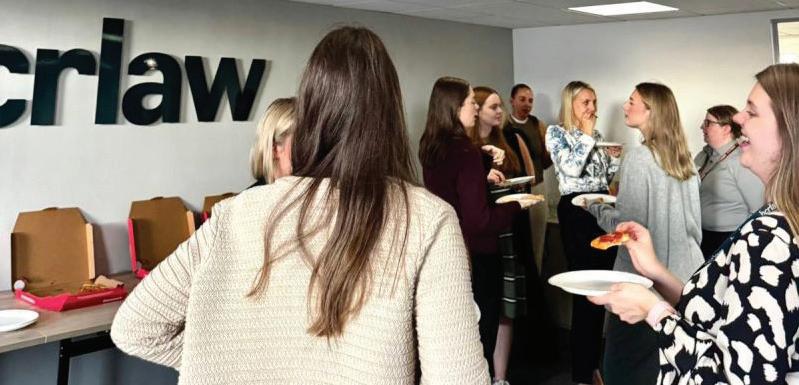



Happy Halloween to you. For many Litigators, the recent ruling in the High Court case of Mazur v Charles Russell Speechlys was indeed scary. I have been trying to get my head round it as a family lawyer who has trainees to look after and bring on. Indeed, I feel as though I have read more case law these past weeks than I have my entire career.
So, I turned to those who are there to provide the guidance, the SRA. Not much. And the Law Society’s guidance was limited.
However, as I am on the Council, I had the opportunity to ask the question at our recent meeting, held 7th and 8th October, what guidance IS the Law Society going to be providing, and crucially, when?
I am told that there have been discussions held already with the SRA and that initial guidance will be out shortly, however more detailed Practice Notes will be out in due course. The reason for this is that The Law Society really does want to get it right and cover as much as possible. There are so many practice areas that have been hit by this ruling, and firms want guidance so they can make decisions about how they can run their cases.
Keep checking The Law Society web
page for updates, or contact me and I will let you know when I have anything. The current guidance from the Law Society as of 09.10.2025 is:
Mazur v Charles Russell Speechlys: what it means for litigators
We're seeking urgent engagement with the Solicitors Regulation Authority (SRA) to understand how it intends to respond to the High Court judgment in Mazur & Anor v Charles Russell Speechlys LLP [2025].
The Administrative Court restated that under the Legal Services Act 2007 and the SRA's 2022 guidance on effective supervision that even within a regulated entity, only an ‘authorised person’ may ‘conduct’ litigation. Unqualified staff are permitted to support an authorised person in the conduct of litigation but not conduct it themselves.
Whilst affirming those principles, the court did not decide that the conduct of the specific litigation giving rise to the appeal had been unlawful, nor did it identify any particular working practices which would generally be considered lawful or unlawful. It was recognised that any such decision would depend on fact and degree in individual cases. The judgement relates only to litigation, but solicitors undertaking other reserved activities may still wish to review the
SRA guidance on supervision to make sure their processes are compliant.
Anyone undertaking litigation who is concerned that they have unqualified staff ‘conducting’ (as opposed to ‘supporting’) litigation will wish to review their processes to make sure they are not acting in breach of the Legal Services Act. There are no statutory restrictions on unqualified staff undertaking work pre-litigation or on someone who is an exempt person in relation to the conduct of litigation. While previous cases have looked at the question of where the boundary is between ‘conducting’ and ‘supporting’ litigation (for example, Baxter v Doble & Anor [2023]), this remains a grey area.
We consider there is now a need for further guidance and we are liaising with the SRA for that purpose. In the meantime, you may wish to consider this judgment and possibly take independent legal advice if you have doubts as to whether your practices fall on the right side of the line.
We will provide a further update on our dedicated webpage on what further guidance the SRA is planning to provide as soon as possible.
Elizabeth Miles President of the
Worcester Law Society
Just because you are a member of the Law Society, does not mean that you are going to be registered to vote!!
There are many elections that take place for people to sit on the Law Society Council, if you do not register your Characteristics (LGBTQ+, Woman, Ethnic Minority, Disabled) or Practice Area, you will not receive a notification should a vote become necessary in that area. Please, it’s the old adage, use it or lose it. No point in moaning that you do not know what is happening if you don’t get involved!! Hop onto the Law Society website, log on to your account, create one if you do not have one, check the necessary boxes and become a proper part of the legal community, of which there are over 200,000 of us. We really are the backbone of society but there are things that we need to change for our own community. We are an amazing Profession filled with people who go above and beyond every day. Let’s support each other to keep it so.


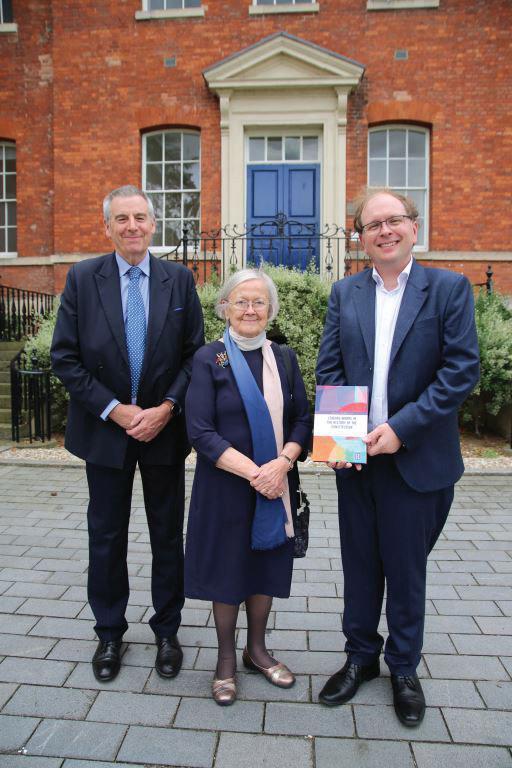
in Worcester, with distinguished guest speaker Baroness Hale of Richmond DBE delivering a keynote lecture to mark the occasion.
academic scholars to the emerging voices of early career researchers, to analyse leading contemporary accounts of the constitution with key documents and sources.
Attendees at the launch were treated to a keynote lecture titled ‘Constitutions Matter’, delivered by the Rt Hon. Baroness Hale of Richmond DBE, former president of the Supreme Court, who is a contributor to the book.
“The book examines important agreements, cases and written works which have developed how we understand our constitution in Britain,” said Dr Monaghan
He continued: “For example; in one chapter Dr Robert Craig from the University of Bristol examines the importance of Magna Carta, in another Professor Mark Goldie from the University of Cambridge looks at religious toleration and the ongoing impact of anti-Catholic legislation, which is still relevant today in determining who can become monarch.”
He added: “Every author who contributed to the collection brings something very different in terms of their style and that makes it very eclectic and not a traditional or formal ‘A to Z’ of the constitution. We’ve all dug into our areas to engage the reader in what’s going on.”
Ahead of the launch, the book had already drawn critical acclaim from some of the leading figures in legal academia in the UK, and while it will be of great use in academic settings, Dr Monaghan believes it will be of great use to anyone who has an interest in the British Constitution.
“You don’t have to be an academic to enjoy it,” he said. “There’s a real public appetite for knowledge on our legal heritage and the feedback I’ve had is that the book is immensely readable.”
A new book exploring the rich and sometimes surprising history of the British Constitution has been launched
Edited by Dr Chris Monaghan, Principal Lecturer in Law at the University of Worcester, Leading Works in the History of the Constitution, brings together a diverse group of contributors, from seasoned
For information on courses at University of Worcester visit www.worcester.ac.uk or for application enquiries telephone 01905 855111 or email admissions@worc.ac.uk


Outstanding Contribution to the Legal Profession-Jane Barker (SME
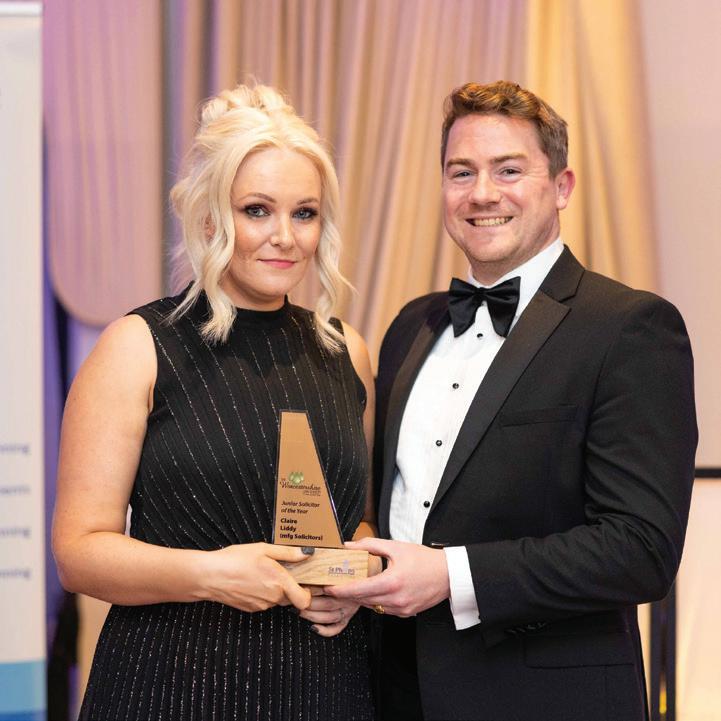




On 12th September 2025 over 200 of the local legal community gathered for our Annual Worcestershire Law Society Awards at the ever-popular venue, The Bank House Hotel in Bransford. This was our biggest event to date and the atmosphere on the night was fantastic!
The competition for the awards was stronger than ever this year and we want to extend a massive congratulations to all those who were nominated and shortlisted, yet most importantly to the winners, who are listed below. Each
winner was thoroughly deserving and should be proud of this achievement.
We would like to thank all of our other wonderful sponsors too, listed below for their continued generosity and support without which this event would simply not be possible.
We were also delighted to raise over £2,000 on the night for Alzheimer’s UK. Our headline sponsor Bespoke Advice Ltd are doing multiple fundraising challenges this year to support them, so please do get
in touch with Suzi Lane or James Oakley in their office if you would like to help them achieve their target for the year.
On a final note, please do get in touch asap with our President, Elizabeth Miles if you are interested in sponsoring the event in 2026- we already have plans to take it to the next level! Please email Elizabeth on elizabeth.miles@greenssolicitors.org
Sponsors
With massive thanks to: Headline Sponsor – Bespoke Advice Ltd
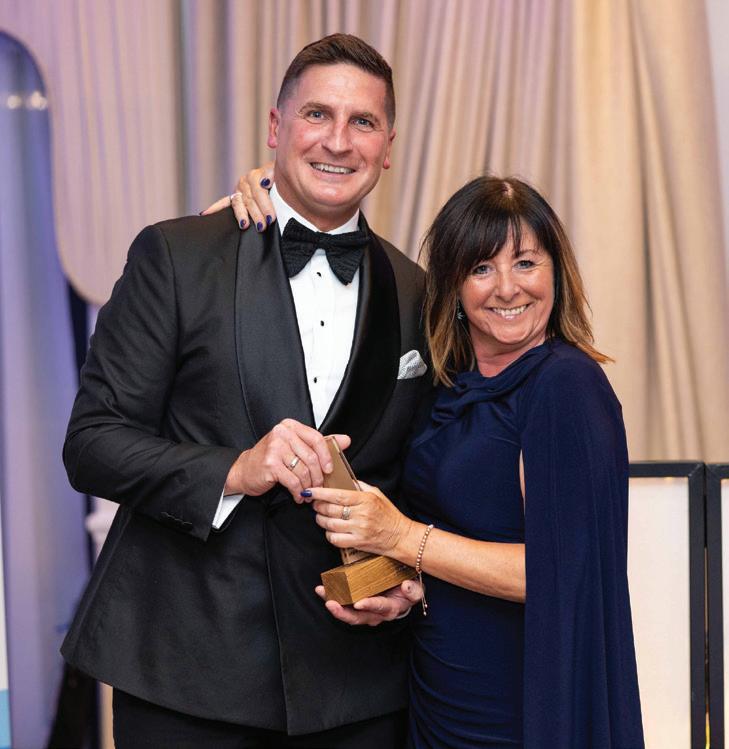


Ballards LLP
Sutcliffe Insurance
Anja Potze

St Philips Chambers
St Ives Chambers
3PB
Also huge thanks as always to Simon Fall Taylor (FT Images) for the Photography, Brody Swain for being our fantastic host and Richard Hencher for the audio and music.
Roll on next year!



2025 Winners
• Outstanding Contribution to the Legal ProfessionJane Barker (SME solicitors)
• Junior Solicitor of the YearClaire Liddy (mfg Solicitors)
• Solicitor of the YearFiona Lawson-Hughes (HCR Law)
• Paralegal of the YearMichelle Smith (Hallmark Whatley Hulme)
• Legal Executive of the YearVeronica Beard (Bradley Haynes Law)
• Trainee Solicitor of the Year- Tim Williams (Bradley Haynes Law)
• Administrator of the YearJaspal Deol (Waldrons Solicitors)
• Employee of the YearAlina Malova (HCR Law)
• Private Client Team of the Year - SME Solicitors
• WLS Rising Star AwardChianna Weaver (MFG)
• WLS President’s AwardSabrina Banga (Waldrons Solicitors)
• Barrister of the YearOrla Grant (No5 Chambers)
• 50% of high net worth individuals have included a charitable gift in their Will
• Charitable Will Trusts and Donor Advised Funds used by one in three millionaires
• Legacy giving is more prevalent amongst millionaires with children than those without; a contrast to mass market trends
New research from Remember A Charity, the UK’s national legacy giving campaign, reveals the prevalence of charitable gifts in Wills amongst high net worth individuals (HNWIs), highlighting the opportunity for further growth.
Charitable legacies prevalent
The study, commissioned by Remember A Charity and conducted by independent research firm Savanta1, surveyed 500 people with over £1 million in investable assets. It reveals that half (50%) of millionaires have already included a charitable gift in their Will, rising to 75% for those with estates of £5 million+.
Noting that legacy giving amongst high net worth individuals may extend beyond a simple donation in a Will, the research finds that nearly one third of the group (32%) have established a charitable Will Trust, and three in ten (28%) donated using a Donor Advised Fund (DAF).
There are generous tax incentives in the UK for those who leave a charitable gift from their estate2. Donations are tax-free and if 10% or more of the net value of the estate is donated this can reduce the Inheritance Tax rate from 40% to 36%.
Amongst those millionaires who have not included a charitable legacy in their estate plans, the large majority (58%) say they are open to doing so and just over 1 in 4 (26%) said that they simply hadn’t thought about it before. This indicates there is opportunity to engage this audience at the Will-planning stage.
Percentage gifts
Although only around one quarter of millionaires (26%) say they have prepared to leave a percentage of their estate to charity, rather than pledging a fixed sum, many more (40%) say they would be willing to donate a share of their estate. With market studies showing that around 90% of legacy income comes from residuary gifts3 and that high value estates are driving up legacy values, this demonstrates the importance and potential impact of increasing percentage gifts in this market.
In contrast to mass market trends, where child-free individuals are twice as likely as those with children to leave a charitable gift4, this study finds that – for high net worth individuals – gifts in Wills are more prevalent for those who do have children (50%) than for those who don’t (42%). This indicates that, at this level of wealth, individuals may well recognise they are able to both

secure their family’s future and provide support for charitable causes. This may also reflect the fact that intestacy tends to be higher amongst those without dependents, with 1 in 5 saying they don’t have a Will and have no plans to write one.
The research showed a surprising lack of up-to-date Wills amongst a demographic that is likely to leave considerable wealth to the next generation. Only 3 in 10 (31%) of millionaires have an up-to-date Will, and over one third (35%) of those aged 55-65 don’t have a Will at all. One quarter of the millionaires in this study say they are in the process of writing or updating their Will, reinforcing the opportunity to integrate charitable giving into estate planning.
“Charitable legacies are hugely valued across the sector, no matter the size of the gift or estate. But these insights into the high value legacy market reveal that legacy giving is even more prevalent in this space than many of us will have anticipated,” says Lucinda Frostick, Director of Remember A Charity. (Continues on p.22)


“While this is certainly encouraging for charities, many of which are becoming increasingly reliant on donations from those with wealth, this also helps to reinforce to professional advisers just how relevant philanthropy is to their client base – and how crucial it is that they can support their clients in achieving their charitable legacy.”
Remember A Charity has developed a range of resources, case studies and practical tips for wealth advisers5, alongside materials for solicitors and Will-writers6, equipping them to explore the topic of legacy giving with clients. A new training programme for wealth advisers will launch this Remember A Charity Week7 (08-14 September 2025).
Professional advisers are encouraged to use the platform of Remember A Charity Week as an opportunity to raise the topic of legacy giving with clients.
To find out more, visit the campaign website.8
1 Savanta / Remember A Charity, High Net Worth Legacy Study, 2025
This research on the high net worth audience was commissioned by Remember A Charity and conducted by Savanta, as part of its MillionaireVue omnibus study. The sample included 500

people with over £1 million in investable assets (high net worth individuals). The fieldwork was carried out from February to March 2025.
2 https://www.rememberacharity.org.uk/making-a-will/faqsabout-wills/faqs-inheritance-tax/
3 https://144850878. fs1.hubspotusercontent-eu1.net/ hubfs/144850878/LTR/The%20Legacy%20Giving%20Report%20 2025%20-%20Smee%20and%20Ford%20and%20Legacy%20 Futures.pdf
4 Remember A Charity / OKO Stages of Change Benchmark Study, 2024
5https://www.rememberacharity.org.uk/about-us/for-wealthadvisers/
6https://www.rememberacharity.org.uk/about-us/for-solicitorswill-writers/
7https://www.rememberacharity.org.uk/about-us/remember-acharity-week/
8https://www.rememberacharity.org.uk/about-us/remember-acharity-week/

We’re standing at a once-in-ageneration turning point. Over the next 30 years, the UK will see a massive intergenerational transfer of wealth as Baby Boomers pass on their estates. This period presents a unique and time-limited opportunity for charities to accelerate their impact through legacies.
The legacy market is one of the few areas in fundraising where we can genuinely say that success for one charity doesn’t come at the expense of another; if anything, the reverse is true. The more charities work together with professional advisors who hold the key - to raise awareness and normalise the idea of leaving a gift in a Will or setting up a sustainable fund whose impact will last beyond the life of the donor - the more likely it is that the charitable sector as a whole will benefit.
Legacies are a cornerstone of a charity’s ability to deliver vital support and services for people when they need support most. Legacies are a deeply sensitive area, rooted in trust; it’s a long-term process, and the returns aren’t always immediate. But through collaboration with professional advisors, we aim to extend understanding around the profound, lasting impact of this vital form of giving.
The next few decades will define the future of the charitable sector. If we can collectively inspire and encourage more people to leave a gift in their Will, the potential is enormous. The intergenerational wealth transfer is already underway - it’s an opportunity that, once missed, won’t come again. For many charities, legacies are no longer just a growing part of the income mix – they are fundamental to our future sustainability and impact.
Worcestershire Community Foundation works across the county with a huge range of local charities and community groups to help them deliver their expert services and become more sustainable. One thing we do well is connect donors with causes that really matter.
Part of our ambition is to unlock the potential of legacy giving by working with local solicitors to help your private client teams support your clients in making effective philanthropic decisions. We are already working closely with a number of solicitors and would love to have the opportunity to come and talk to your private client teams to explain the extent of the services we can offer to make your lives easier.
Please contact Lucy Wells, Director, to arrange a chat on 07909 111812 / lucy. wells@worcscf.org.uk

The Law Society of England and Wales, the Bar Council of England and Wales, the Law Society of Scotland, the Faculty of Advocates, the Bar of Northern Ireland and the Law Society of Northern Ireland representing 250,000 lawyers have come together to express grave concern about the climate of increasing hostility towards lawyers and judges.
Legal professionals have been vilified and targeted simply for doing their job. The judiciary is independent from parliament and politicians, and lawyers represent their clients without fear or favour.
Politicians have a responsibility to respect the role of judges in upholding the rule of law and interpreting legislation that has been agreed by parliament.
Unlike politicians, members of the judiciary are expected to be strictly impartial when considering how the law
should be applied. Lawyers must abide by their professional ethics code and ensure that people facing life changing legal problems get a fair hearing.
Politically motivated attacks on the legal profession are irresponsible and dangerous. They weaken public trust and confidence in the rule of law and erode the very foundations of justice that underpin fairness and democracy.
Barristers, solicitors and judges have been subjected to violence, death threats and rape threats. Some have faced threats to their family members.
We have repeatedly seen law firms and offices be set upon by protestors. We are deeply disturbed by this rising tide of intimidation targeting those who serve our justice system and uphold democratic principles.
Lawyers should never suffer adverse

consequences because they are identified with their clients or their clients’ causes. Lawyers are not their clients. Those who are unpopular or despised are still entitled to access the courts just as much as anyone else.
Nobody is above the law, including politicians. Nobody is beneath the law’s protections.
Law Society of England and Wales president, Mark Evans, said: “Nobody should be put at risk for doing their job, least of all when that job is to uphold the law.
“Attacks on the legal profession undermine the rule of law and can have real-life consequences. In recent years, negative language used about legal professionals has seen waves of online hate and death threats causing many lawyers to seek police protection.”



Confidence+ is an exciting, student-tostudent facilitated programme designed to equip learners with the practical skills and confidence needed to thrive beyond the classroom. In today’s competitive job market, academic qualifications alone are not enough! Employers are increasingly looking for candidates with strong soft skills, adaptability, and the ability to present themselves professionally. Confidence+ bridges that gap between academic learning and the business world.
This event brings young aspiring professionals and a range of experienced business people such as CEOs and law firms, together to put their new-found confidence to the test.
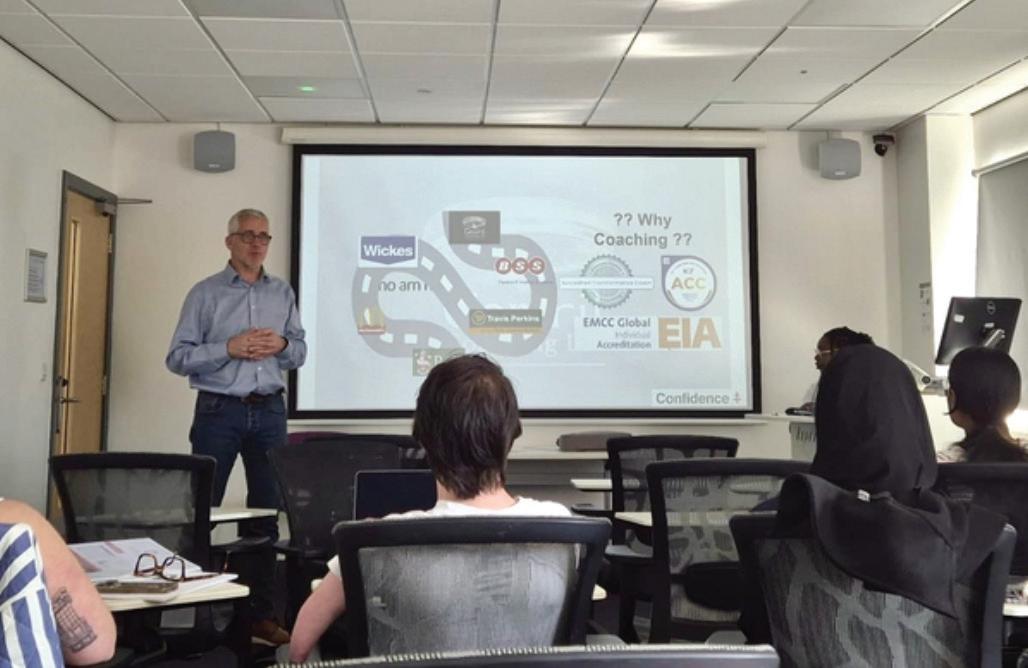
Confidence+ informs students on three key themes:
Transferable Skills - Confidence+ begins with a focus on transferable skills—the versatile tools students need to thrive in any academic, professional, or personal environment. Students develop essential skills such as persuasion, mediation, problem solving, interpersonal skills and advanced writing skills. Developing these core skills, students gain a strong foundation that prepares them for realworld challenges, especially in the corporate world.
Interview Skills - Learn how to sell yourself with confidence! This part of the programme teaches students how to use their personal experiences and achievements to stand out in interviews. From building a strong narrative to answering tough questions, students gain the tools to make a lasting impression.
Presentation skills - Confidence+ enhances public speaking and time management by guiding students through the process of developing and delivering effective presentations. With a focus on research, structure, and delivery, students learn to communicate clearly and confidently in any setting.
The Confidence+ Programme has provided law students at the University of Worcester with valuable opportunities to build confidence, develop professional skills, and connect with individuals from the legal and business sectors. The programme includes in a finale event that brings together professionals from a wide range of industries to celebrate the students’ achievements. This event also serves as an excellent networking opportunity, enabling students to forge meaningful relationships and explore potential future career opportunities.
Participants gain direct access to employment opportunities such as mentorships, work experiences, and job openings from attending companies. Completing the programme also earns a congratulatory certificate and Institute of Leadership student membership, strengthening CVs and showcasing determination.
What have law students gained from the programme?
• Gain the ability to develope and strengthen their current skill set and learn new skills employers value. Be awarded a certificate in aknowledgement of completing the programme.
• Become a Student Member of the Institue of Leadership where you have access to E- Learning programmes, My Career Hub, Recorded Webinars, access tp the Edge Journel and access to podcasts by professionals.
• Build condifence in their current skill
set and develope new skills
• Network with professionals
• Be invited to our Finale Event!
• Ability to apply and become a Confidence + Ambassador



Co - Founders:
The Co-founders of Confidence+ are all University Law students who have developed whilst working at Milford Research and Consultancy. Creating and delivering this programme has allowed these 3 students to strengthen their leadership, communication and organisation skills and given them practical experiences and confidence that directly support their growth as future legal professionals.
They aimed to embed these skills into the programme, enabling law students to develop the competencies essential for advancing successfully into the legal field after their studies.
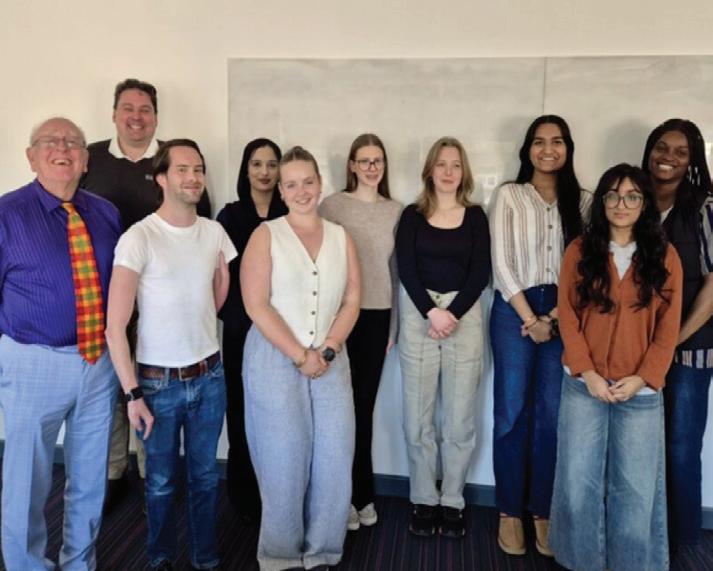
For more information please contact Info@milfordresearch.co.uk or visit our website at www.milfordresearch.uk. P: 01386 335878
We are looking for law firms, CEOs, and industry professionals to join us as guest speakers for the Confidence+ programme. Any local universities who wish to inspire the next generation and help shape future leaders please do not hesitate to get in touch!

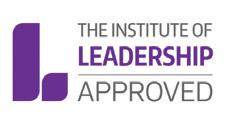
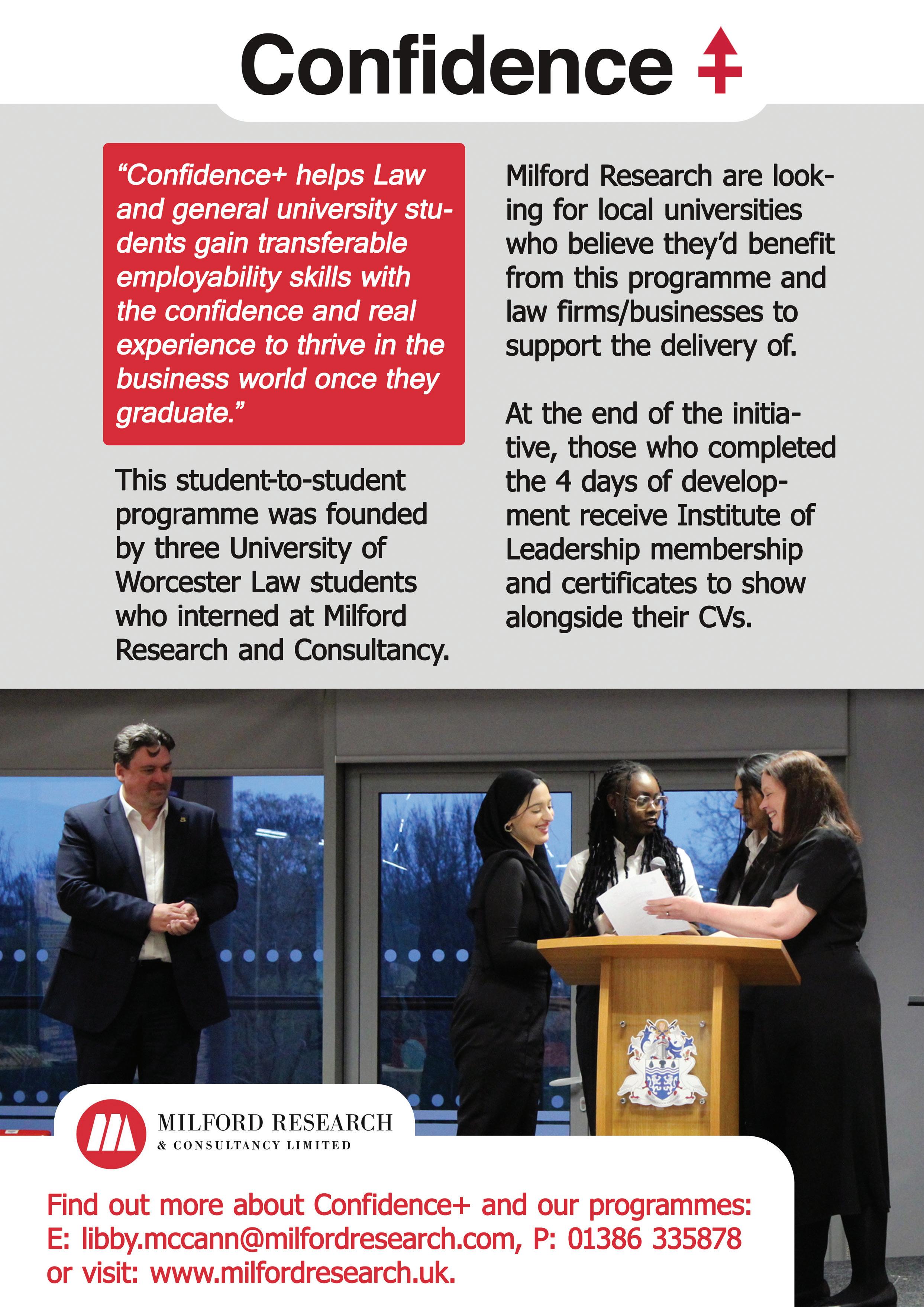
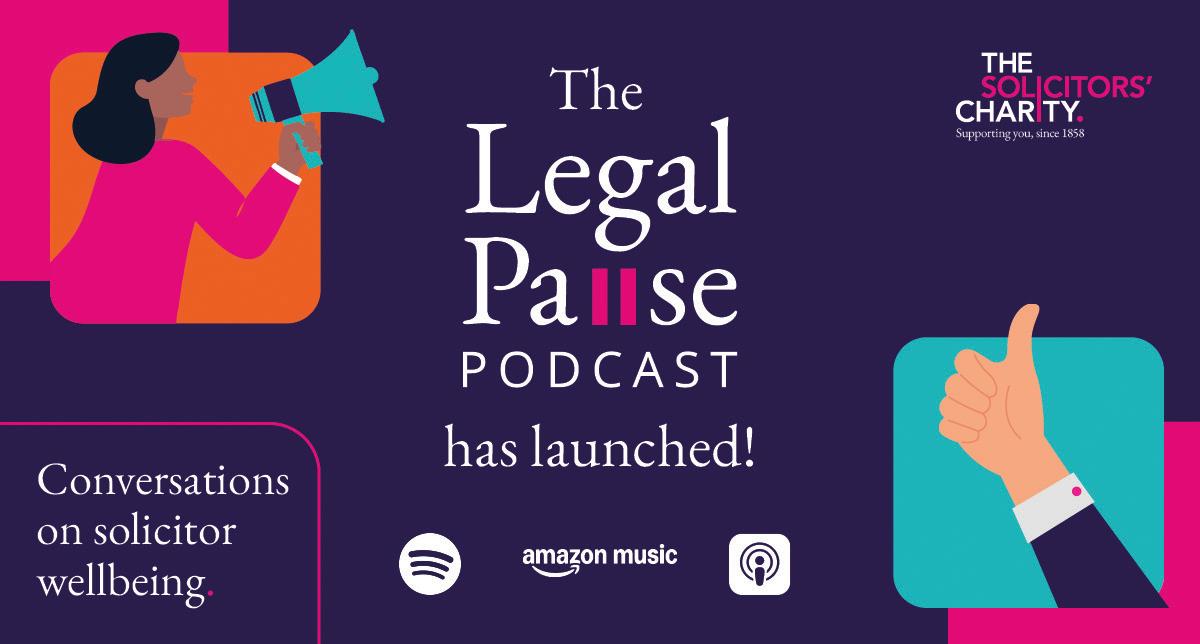
The Solicitors’ Charity has launched The Legal Pause, a brand-new podcast dedicated to supporting the wellbeing of solicitors across England and Wales.
Life in law is demanding, and solicitors often put their own wellbeing behind the needs of their clients. The Legal Pause creates space to stop, reflect, and recharge through thought-provoking conversations with experts, thought leaders, and partners from across the legal sector.
Each 30-minute episode offers practical insights and inspiring perspectives on issues that matter most to today’s solicitors – from managing stress and financial pressures to building emotional resilience and staying connected in a fastchanging profession.
It speaks to employers, to law firms and those who can make a difference to the experience of life in the law by highlighting support routes and sources.
Hosted by Nick Gallagher, CEO of The Solicitors’ Charity since 2019, the podcast draws on more than two decades of his experience leading legal charities including LawWorks, the Bar Pro Bono Unit (now Advocate) and the Personal Support Unit (now Support through Court). Nick’s deep understanding of the profession ensures the podcast delivers both empathy and actionable ideas.
Nick Gallagher, CEO of The Solicitors’ Charity, said: “Solicitors dedicate their careers to helping others, but too often, they do so at the expense of their own wellbeing. The Legal Pause is about giving the profession a moment to breathe – a space for open, engaging conversations that put solicitors’ wellbeing first.”
The Legal Pause is available now on Spotify, Apple Podcasts, and Amazon Music. Episodes are designed to fit easily into a busy routine – whether during a commute, a coffee break, or a moment away from the desk.
Why listen to The Legal Pause?
• Expert conversations that shine a light on solicitor wellbeing in all its forms
• Practical insights solicitors can apply in everyday life and work
• A half-hour format designed to fit seamlessly into busy schedules
The podcast builds on The Solicitors’ Charity’s mission to provide emotional, professional, financial, and physical wellbeing support to solicitors in need, while promoting a healthier and more resilient legal profession.
Listen to The Legal Pause on Spotify, Apple Podcasts, Amazon Music, or visit the landing page here: https:// thesolicitorscharity.org/the-legal-pause


Tribunal Practice and Procedure Tribunals under the Tribunals Courts and Enforcement Act 2007 (6th edition)
By Edward Jacobs
ISBN: 978 1 91364 868 8 Legal Action Group www.lag.org.uk
Confused by the complexities and contradictions of tribunals? This definitely is the definitive guide now published in a new 6th edition
An appreciation by Elizabeth Robson Taylor of Richmond Green Chambers and Phillip Taylor MBE, Head of Chambers and Reviews Editor, “The Barrister”
There is many a lawyer whose practice generally -- and almost invariably -- is concerned mainly with court work. But, while this is mostly the case, most lawyers, more often than not, do find
themselves involved, often frequently, in the workings and procedures of a tribunal -- which generally differ somewhat from the procedures of the courts.
Fortunately the clarification of this important point is dealt with extensively, authoritatively and in detail in this book which, now in its 6th edition, has proved itself over the years as an essential and certainly authoritative source of reference for any and all practitioners finding themselves dealing with tribunals, as it clarifies what a tribunal is and what it does -- while pointing up the often subtle differences between the two.
In which case, the sensible and well informed course of action on the part of the practitioner is to acquire this book. Recently published by the Legal Action Group (LAG), it has over six editions, emerged as the definitive work on this often confusing area of practice, with an authority that is largely unchallenged.
The fact that it has acquired such a lengthy publication history offers assurance that it’s the definitive work indeed in this often complex subject, as the practice and procedure of tribunals has undergone certain changes over the years. As LAG confirms, this is ‘the most comprehensive and authoritative guide to the integrated Tribunal system, created by the Tribunals, Courts and Enforcement Act 2007.’
So what then, are the differences between a court and a tribunal?
There’s many a lawyer who has, almost inevitably, enquired as to what the precise difference actually is. The immediate answer is that there is ‘no general definition in this specific sense of its general features.’ Or, as pointed
out in the past by another member of the judiciary, ‘the word “tribunal” has not, like the word “court” an ascertainable meaning in English law.”
This is arguably a traditional view which some might dispute. But whatever the argument, knowledge of the workings of contemporary tribunals is nonetheless essential for the interested and committed practitioner. And this is the assurance that this book provides.
It is certainly an impressive work of reference, offering extensive tables of cases, statutes and statutory instruments, plus a table of European and international legislation and -important this -- a table of abbreviations! Plus, the book is easy to navigate, with a detailed table of contents, numbered paragraphs throughout, a detailed index and for further clarification and for those doing research, a wealth of footnotes on almost every page.
Most importantly, there are two appendices, commencing with Appendix A, which features over seventy pages -the Tribunals, Courts and Enforcement Act 2007. Equally vital is Appendix B -The Tribunal Procedure (Upper Tribunal) Rules 2008.
This thorough, useful and informative text certainly deserves the definition of indispensable -- for any practitioner embroiled in the often complex issues which characterize contemporary tribunals.
And also, in the tradition of LAG, this is a work of reference which can certainly prove helpful to litigants in person.
The date of publication is cited as 2024.
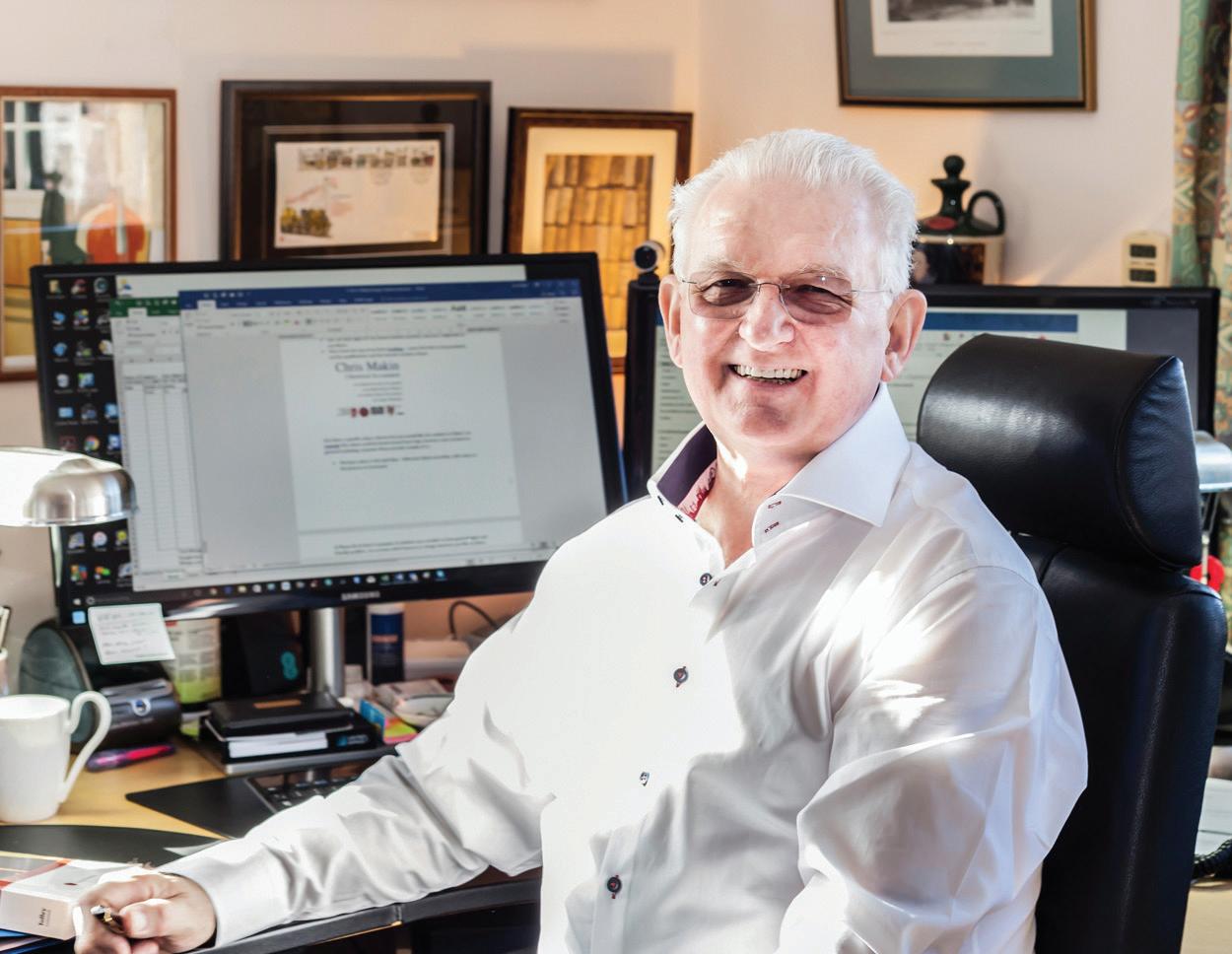
As any litigator in England and Wales knows, Part 35.3 of CPR states that the expert has an overriding duty “to help the court on matters within their expertise.” And that expertise is measured by membership of appropriate professional bodies. I am typical: a fellow of the Institute of Chartered Accountants (ICAEW) and The Academy of Experts and a member of the Chartered Arbitrators, among other qualifications.
But what if an accountancy expert were to lose his qualification during preparation for a case? Let me tell you about Jeffrey Davidson
Jeff, like me, was one of the early specialists in forensic accountancy. A Cambridge graduate, he was an affable chap who I met often at Institute events.
But about three years ago I was asked to help a businessman who had bought a business which had to go to expert determination, and Jeff was the accountant chosen to make a binding decision on value. The businessman was unhappy with the value, and my work quickly established that Jeff had committed a manifest error which caused my client to overpay by about £100,000.
I drew Jeff’s attention to this mistake, and he first said it was none of my business. When I pressed him, he said he would not alter his finding.
My client wanted to sell the business, and would find that difficult with ongoing litigation, so he swallowed the £100,000 and did not take the case to law.
But whilst this was being considered, both the client and I took a close look at Jeff, and we discovered two things. One was that something irregular may have happened with a charitable trust in which Jeff and his wife were the sole trustees, and that was to be investigated by the Charity Commission. I have not seen the outcome.
The other is that a client had lodged complaints which were being investigated by the ICAEW. They asked Jeff to disclose certain documents to aid their enquiry but he pleaded client confidentiality
(not valid in these circumstances) and then that the documents had to be redacted, which for some reason was taking several months.
It is against our Royal Charter to refuse to supply documents in an enquiry, and Jeff was brought before the Disciplinary Committee. He was given a severe reprimand, a fine of £5,000, costs of £8,125 and an order to provide the documents within four weeks.
When those documents were still not provided, he automatically lost his membership of ICAEW; he was no longer a chartered accountant.
Interestingly, this was going on as a major trial approached in which Jeff was one of the forensic accountant expert witnesses. This was JSC Commercial Bank Privatbank -v- Igor Valeryevich Kolomoisky & Ors [2025] EWHC 1987 (Ch), which concerned the alleged theft of £1.9billion (yes, £1,900,000,000!) from a Ukranian bank just before it was nationalised. There were 8 defendants including Ukranian, English and Cypriot companies. The bank as claimants had 4 KCs and 4 junior counsel, and the various defendants fielded 6 KCs and 5 junior counsel. It must have been quite a jamboree, and the courtroom must have been very crowded.
The hearing was over 43 days in 2023 and the judgment, by Trower J, was a heavy piece of work issued on 30 July 2025. It ran to 490 pages, and the contents page alone ran to 4 pages. I confess I have not read it all.
The interesting part for us is at paragraphs 305 to 314 (there were 2025 paragraphs in all!). The learned judge assessed the work of the forensic accountant for the bank and for the first two defendants. Jeff was expert for the first defendant.
After commenting on the work of the three expert accountants, Trower J turned to the status of Jeff at paragraph 311, which I quote in full:
“At the time of their reports, each of the experts was a fellow of the Institute of Chartered Accountants in England and Wales. (ICAEW). During the course of July 2023, after the trial had commenced but before he was called to give evidence, it came to the attention of the Bank’s solicitors that Mr Davidson’s status as a member of ICAEW was now recorded as Ceased with a sub-status recorded as Cessated. They wrote to Mr Kolomansky’s solicitors drawing attention to the cessation and attaching a copy of his disciplinary record which disclosed that he had been the subject of a severe reprimand in relation to two disciplinary matters in respect of which there had been hearings on 8 March 2023. None of this information had been disclosed by Mr Davidson either to the Bank or to the court.”
Trower J goes on at 312 to 314, which are lengthy paragraphs. I will quote parts of these:
“Mr Davidson’s explanation for what had occurred was eventually revealed on 29 September 2023, five days before he was due to give evidence.”
“He also disclosed that the Charity Commission had removed him as (Continues on p.28)




trustee of two charities and that those charities had been the subject of statutory enquiries…” (One allegation was that funds of £500,000 were missing.)
“In his witness statement, Mr Davidson also gave notice that he would rely on his privilege against self-incrimination to justify his refusal to answer any questions about the August 2021 complaint to the ICAEW and the Charity Commission enquiry.”
In light of the position adopted by Mr Davidson, it was not possible for the court to obtain a full picture of what had occurred or the extent to which the matters in respect of which he had been investigated or criticised might have been relevant to the quality of his evidence.”
“In my view, where an expert presents his evidence as a member of a professional organisation, which is expected by him to give the court assurance as to his ability to act in the case, he is under a duty to inform the court if his membership has ceased, more particularly where the cessation is linked to disciplinary proceedings against him.”
“… Mr Davidson also failed to disclose that he has been the subject of a finding in another case that his opinion was based on wholly unsupported and fanciful assumptions, which ignored the objective facts and undermined his credibility as an independent expert (per Leggat LJ in Al Neheyan -v- Kent [2018] EWHC 333 (Comm) at [1951]).
I draw two morals:
1. Experts must inform the court if they have been drummed out of the regiment, and if they have been criticised as experts in other cases and
2. As I’ve said many times before, solicitors must choose their experts with care.
Biog: Chris Makin has practised as a forensic accountant and expert witness for 30 years, latterly as Head of Litigation Support at a national firm. He has given expert evidence about 100 times. He also performs expert determinations.
Chris is a fellow of the Institute of Chartered Accountants where he has served on the Forensic Committee, and as an ethical counsellor; he is a fellow of the Chartered Management Institute, a fellow of the Academy of Experts where he serves on the Investigations Committee, and a mediator accredited by the Chartered Arbitrators. He practises as a mediator, from his home in West Yorkshire and his rooms at 3 Gray’s Inn Square, London WC1R 5AH, telephone 020 7430 0333. He has mediated 100+ cases so far, on a huge range of subjects, with a settlement rate to date of 80%. For more see his website with videos:
www.chrismakin.co.uk chris@chrismakin.co.uk


The Expert Witness Institute is delighted to announce that Lady Simler, Justice of the Supreme Court, was appointed as President of the Institute on 15th October 2025.
Lady Simler was called to the Bar by Inner Temple in 1987, having read law at Cambridge University, and completed a postgraduate diploma in EU law at the Europa Institute, University of Amsterdam. She practised at the Bar at Devereux Chambers where she became Head of Chambers before becoming a judge. During her time at Devereux she was a member of the Attorney General’s Civil Panel A and was Junior Counsel to the Inland Revenue (Common Law) between 2002 and her appointment to silk in 2006.
She became a Judge of the High Court King’s Bench Division in October 2013. In January 2015 she was appointed President of the Employment Appeal Tribunal for a three-year term which ended on 31 December 2018.
Having served as High Court Liaison Judge for Diversity she was appointed chair of the Diversity Committee of the Judges’ Council in 2019. She also served as a member of the Civil Executive Team chaired by the Deputy Head of Civil Justice, reporting to the Master of the Rolls. She was sworn in as a Lady Justice of the Court of Appeal in June 2019. She was appointed as a Justice of the Supreme Court in November 2023.
Lady Simler succeeds The Right Hon Lord Hodge, Deputy President of the Supreme Court who became president in 2020 and stepped down as he is due to retire from the Supreme Court at the end of the year.
EWI Chair, Sir Martin Spencer, said “We are thrilled to welcome Lady Simler as our new President. She has already demonstrated a strong interest in the role of experts, expert evidence and the work of the Institute. We look forward to working with her and bringing her strategic insight to the organisation and membership.”
Lady Simler said “It is a pleasure and a privilege to have been asked to take over from Lord Hodge as president of the Expert Witness Institute. There is a strong public interest in the work performed by experts and the justice system depends on expert evidence being both impartial and of the highest quality it can be. The EWI has an important role to play in supporting this and I look forward to working with the EWI and taking forward the excellent work done by my predecessor, Lord Hodge.”

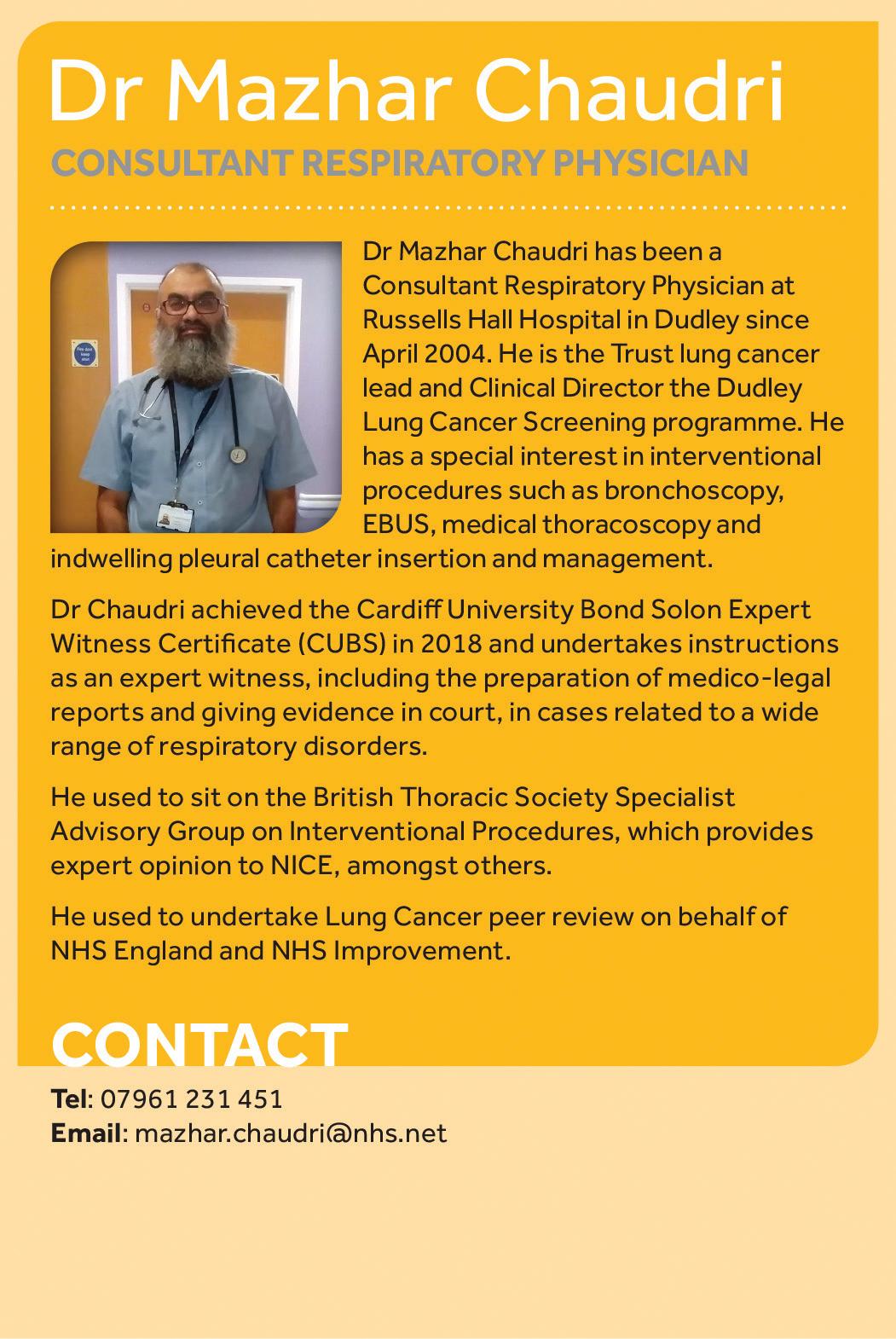
criticisms when they are frequently unaware of the outcome of the case?
The judgement from The Honourable Mr Justice Trower in JSC Commercial Bank Privatbank v Igor Valeryevich Kolomoisky & Ors presents a number of interesting learning points for Expert Witnesses. But we have been particularly struck by the assertion that Expert Witnesses have a duty to disclose previous criticisms of their evidence in judgments.
What the judge said “In two previous cases, Pindell Limited v. Airasia Berhad [2010] EWHC 2516 (Comm) and ACG Acquisition XX LLC v. Olympic Airlines [2012] EWHC 1070 (Comm), Mr S’s evidence had not been accepted by judges of the Commercial Court. In the second of those cases, ACG (at para 50), Teare J had held that Mr S had not given sufficient consideration to his duty to the court not to omit matters which might detract from his stated opinion, having regard to some of the findings made by Tomlinson J in Pindell. The consequence of this in ACG was that Teare J was unable to rely on his evidence, save when accepted by the other expert.
These criticisms took on a further level of significance in light of the judgment in Peregrine Aviation v. Laudamotion [2023] EWHC 48 (Comm) at [22], in which it was noted by Henshaw J that “Mr S ought to have disclosed criticisms of his evidence in two previous judgments as part of or in conjunction with his expert report in that case”. Henshaw J’s judgment was handed down on 17 January 2023 but, despite this timely reminder of his duties, it was only six months later, a mere three days before his cross-examination in these proceedings, that Mr Kolomoisky’s solicitors disclosed to the Bank’s solicitors what had been said. In cross-examination, Mr S said that he thought he had forwarded what had been said in Peregrine to the lawyers at an earlier stage. I have no means of knowing whether he did in fact do so, but I consider that he should have ensured that this information was made available to the Bank and the court much earlier than he did. In that respect he was in breach of his
own personal duty to the court. This failing made an evaluation of the credibility of his evidence a more difficult task than would otherwise have been the case.”
Most experts will tell you that they are frequently unaware of the outcome of cases, let alone being sent copies of judgments that they have been mentioned in. This problem pervades the justice system and even extends to the Family Courts where there is a specific requirement for the Instructing Party to “send to the expert a copy of the court’s final order, any transcript or written record of the court’s decision, and its reasons for reaching its decision, within 10 business days from the date when the party received the order and any such transcript or record.”
(Family Procedure Rules Part 25.19)
The Criminal Courts are at least a little kinder. The Criminal Procedure Rules r 19.2(3) refer to the expert’s duty to “disclose to the party for whom the expert’s evidence is commissioned anything of which the expert is aware.”
But it seems somewhat unfair to say that Expert Witnesses have a duty to share this criticism since this is infrequently shared with them.
If you are aware of criticism
Of course, if you are aware of any criticism you would be wise to make your Instructing Party aware of it. The last thing you want is for your credibility to be attacked by opposing counsel who have researched previous cases in which you have been mentioned.
The good news?
Just because you were criticised before, it doesn’t mean that you cannot redeem yourself. In considering another expert’s evidence, the judge wrote:
“In a judgment I gave in unrelated litigation (Bank St Petersburg OJSC v. Arkhangelsky [2022] EWHC 2499 (Ch) at [472]), I had
criticised the quality of Mr Thomas’ evidence as betraying a marked failure to recognise that his role was to assist the court by an independent and dispassionate statement of his views without descending into the arena to argue the counterclaimants’ case on their behalf. Not surprisingly, he was taxed with this in cross-examination and accepted that the criticisms I had made of his evidence in that case were fair. However, his evidence in these proceedings was in marked contrast to his evidence in the Bank St Petersburg case. While he was firm in the views that he expressed, he did not cross the line into advocacy and explained the concepts on which he relied with clarity. He was confident in his opinions, and justifiably so. My overall impression was not just that he knew what he was talking about, but also that he addressed the issues with which he had been asked to deal in a fair and balanced manner.”
Learning points
So the key learning points are:
Do ask your Instructing Party for feedback and to send you a copy of any judgment, particularly if you gave evidence in a court/ tribunal.
If you are aware of any previous criticism, you should declare this to any Instructing Party.
If you have been the subject of criticism, take the time to reflect on the criticism and consider how you might amend your practice. Undertake further training where necessary.
Link to judgment
https://www.bailii.org/ew/cases/EWHC/ Ch/2025/1987.html
Simon Berney-Edwards EWI

